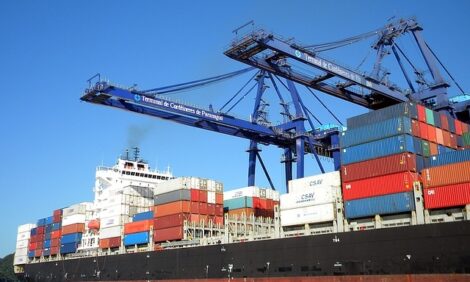



Joint Approach to Meat Hygiene Services
SCOTLAND, UK - Organisations representing the Scottish red meat industry have written to the Cabinet Secretary for Rural Affairs, Richard Lochhead, outlining their thoughts on the delivery of appropriate meat hygiene services and associated charges specifically for Scotland.Issued jointly on behalf of National Farmers' Union (NFU) Scotland, Scottish Association of Meat Wholesalers, Scottish Federation of Meat Traders Association, Food Business Operators, National Beef Association, Institute of Auctioneers and Appraisers Scotland, Scottish Beef Cattle Association and National Sheep Association Scotland.
The direct appeal to the Cabinet Secretary was prompted by the recent announcement by the Food Standards Agency (FSA) that it intends to withdraw its financial contribution towards the delivery of meat hygiene inspection costs. This FSA announcement, and the resounding silence since it was made, has caused a great deal of concern within the Scottish industry.
The ongoing review of the Meat Hygiene Service (MHS) has failed to strip out much of the cost and inefficiency associated with the meat inspection service in abattoirs. The Scottish industry group is adamant that, as the FSA and the MHS have failed to deliver the necessary streamlining and true cost savings, the prospect that the full cost of inspection will be transferred to abattoir owners and food business operators is totally unacceptable. Absorbing costs of the magnitude envisaged by FSA could be ruinous for many businesses and damage the Scottish red meat processing sector.
NFU Scotland Vice-President, Nigel Miller, said: “The group has concerns that transformation of the MHS at a fair cost to the industry may only be achieved under a new, more responsive, structure. Therefore, we have asked that the Scottish Government carry out a feasibility study to into the possibility of developing a stand-alone Scottish service to deliver meat hygiene inspections.
“This Scottish service would provide an opportunity for Scotland’s meat industry to build on their world leading reputation for quality and hygiene, which even now under the FSA, is being delivered at a lower unit cost than the rest of the UK. A new Scottish service established in collaboration with abattoirs and food business operators can deliver further improvements through both efficiencies and developing a more risk-based approach.
“The group believes this proposal represents a positive way forward for Scotland’s meat industry to continue to deliver high quality Scottish products in a more sustainable manner should FSA persist with its plans to remove its share of the costs of their controls.”
Executive Manager of the Scottish Association of Meat Wholesalers, Ian Anderson added: “The FSA continue their woeful performance on this issue by failing to present their case and communicate it properly. They simply cannot change the rules in relation to financing but keep all their other rules on service delivery and charging exactly the same.
“While some cost reductions have been made, many of those claimed during the recent FSA Board meeting simply don’t stand up to scrutiny and I have written to the FSA Chief Executive, Tim Smith, about this. Efficient meat inspection in Britain should be deliverable for around £45 million. Currently, it costs £69 million. There is still inefficiency to be driven out of the system before the FSA could reasonably claim that their full cost recovery policy could be justified. The FSA Board is asking us to subsidise its own inefficiency and we will contest this every step of the way.
“If the FSA are hell-bent on bulldozing their new policy through, before they achieve operational efficiency and cost-effectiveness, we must have a fundamental appraisal, under the auspices of the Scottish Government, of options for the future delivery of meat inspection in Scotland. The Scottish industry has the lowest unit cost for meat inspection in Britain yet we do not see any benefits from this. It will be important, therefore, that any review includes the option of a Scottish meat inspection service.”
TheCattleSite News Desk


